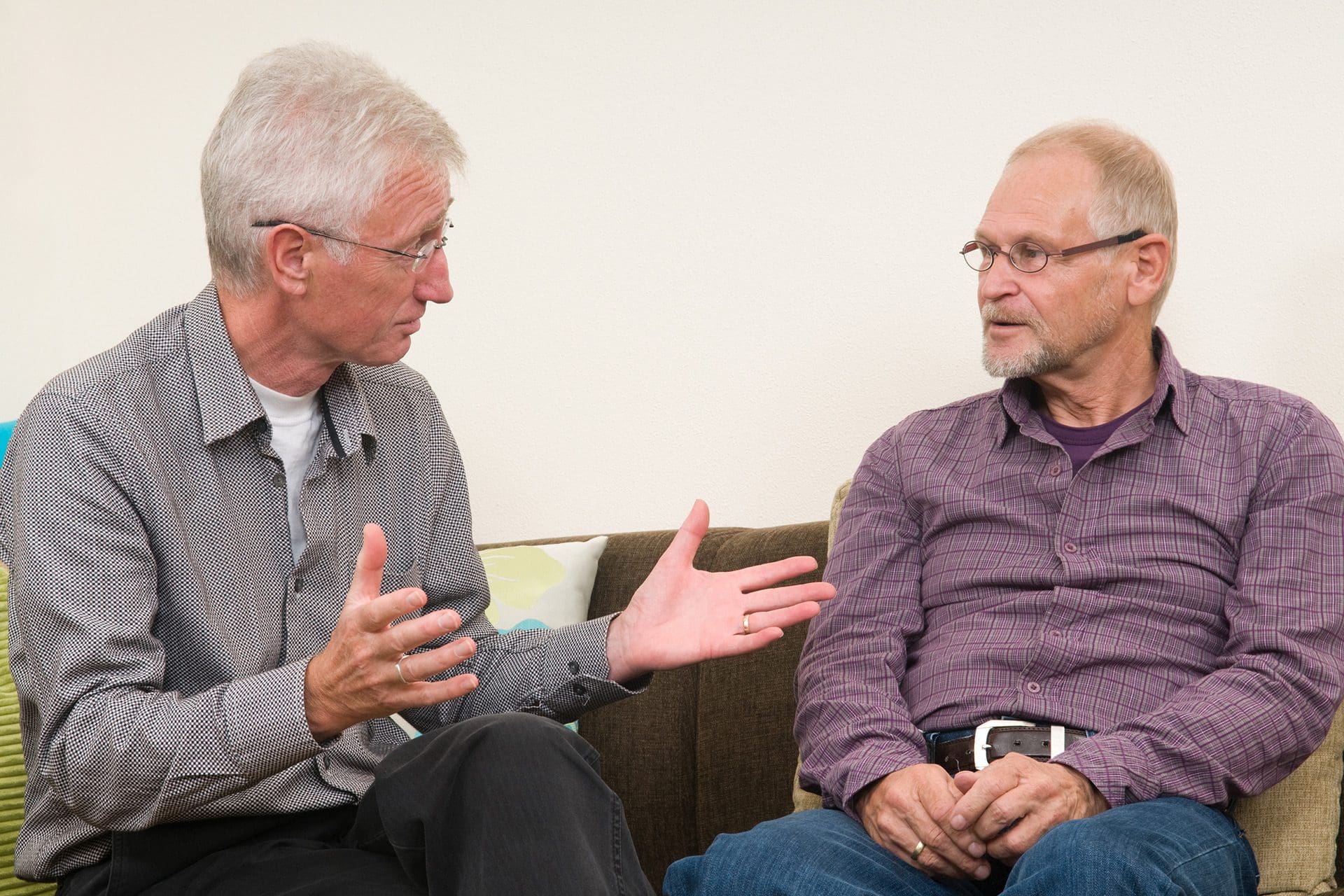Patients & Families
Patient and Public Involvement (PPI) - Get Involved
PPI gives YOU a bigger say in the research and research methods that matter to YOU!
We are interested in finding out:
• the type of activities you would like to be involved in
• whether you would like to take part in face to face or virtually
• the research that matters to YOU
If you are interested in being involved, click the button below and complete your contact information and preferred meeting format.

Patient and public involvement (PPI)
Patient and Public Involvement (PPI) is the process of actively working with patients, carers, families, and members of the public to design, manage and carry out research that is important to them.
It shifts research from the traditional view of ‘research being carried out ON those it impacts’ to the more helpful view of ‘research being carried out WITH and FOR those it impacts’.
PPI gives patients, carers, family members and the public a bigger say in the research and research methods that matter to them, ultimately to the benefit of everyone.
Most research studies have a PPI element in them, with individuals giving feedback on research questions and methods.
If you are interested in finding out more, or being involved in PPI in mesothelioma research, please contact PREDICT-Meso@glasgow.ac.uk to see how you can get involved.
Mesothelioma is a rare cancer that most commonly occurs in the lining of the lung (pleura). It can also occur in the lining of the abdomen (peritoneum) and the lining of the heart (pericardium). The main symptoms are shortness of breath, chest pain, cough and tiredness. Being exposed to asbestos is a major contributing factor.
For information on mesothelioma please check out these informative websites:




taking part in research

As mesothelioma is a rare cancer, it is not as understood as some other more commons cancers. Taking part in mesothelioma research can change this – and change lives.
What can I expect?
This will vary from study to study but may include (but are not be limited to): sample collection, questionnaires, additional scans, new medicines or other treatments.
Every mesothelioma project is different and comes with its own Participant Information Sheet (PIS) that will inform you of the projects aims and what will happen to you, your samples and your data, if you decide to take part.
Research projects generally require your consent. Research participation is voluntary, and you should never be coerced into taking part in a study. Your healthcare team will be available to discuss study participation, benefits and risk with you.
Even after you consent to a study, you can remove yourself (and your information) at any time so remember if you decide to take part in a study, you are always able to change your mind.
What is mesothelioma research?
Mesothelioma research allows us to develop new tests and new treatments with the hope that we can detect mesothelioma sooner, and treat it more effectively, prolonging life and improving symptoms.
Mesothelioma research cannot exist without research participants; those individuals with mesothelioma (or suspected mesothelioma) that give up their time and allow researchers to take additional samples, ask additional questions and offer new treatments while measuring their effects. Research participants are the real heroes in research.
Why take part in research?
Taking part in drug trials may directly benefit you and your health as a mesothelioma patient. However, not all trial medicines will work for everyone, and not all research investigates treatments.
For many research participants, the main reason for taking part in research is to either:
find out more about their condition - taking part in research often involves closer monitoring and additional tests, or
to contribute to the understanding on the subject, adding to existing knowledge on the condition that could help future patients and their families

What mesothelioma research I can get involved in?
Check out the Mesothelioma UK clinical trials app for up-to-date information on UK-wide clinical trials and how you can get involved
PREDICT-Meso clinical study- Meso-ORIGINS
PREDICT-Meso leads a clinical study called Meso-ORIGINS. This study is funded by Cancer Research UK (CRUK) and they have a great lay summary of the study in the ‘find a trial’ section of their website. Click the button below to read this summary and find out which hospitals are taking part
PPI in mesothelioma paper
PREDICT-meso Network Member @AfroditaMarcu and her team have just published an interesting paper on Patient and Public Involvement (PPI) in mesothelioma. It provides provides a detailed picture of the benefits and challenges of PPI, to both researchers and PPI representatives, in mesothelioma and is well worth a read!
Motivations
- Wanting to help other patients was one of the main motivations to take part in the project- the search for meaning and hope for patients and their families
- The coordinators from the mesothelioma patient organisations were interested to know more about PPI, research and mesothelioma related activities so that they could inform the patients they support
- Participants were mainly motivated by a desire to get answers to questions around trials and treatment, but also to gain a sense of existential meaning and hope for the future
Barriers
- Participants did not know what to expect of the project or of their role as PPI members, either because they were unfamiliar with the concept of PPI or because the project aim was not well explained or easy to grasp. For many participants, the purpose of PPI only became clear with time.
- The use of scientific language was an additional barrier to becoming involved in PPI activities, with some participants finding scientific jargon rather intimidating
- Need to provide more information about roles and relationships prior to our first meeting, as a lack of understanding about PPI was reportedly confusing our participants.
Results
- Study has had considerable impact, as it has led to the creation of a sustainable PPI group, Me-So- Involved
Commercial sharing of research tissues and data
Where we have appropriate permissions (consent from participants or a research ethics board) and ethical approvals in place, we may share anonymised research data, images and tissues with commercial companies for use in research&development projects.
These companies may profit from results of these projects/developments, but will never profit from data solely. Sharing research data with commercial companies is mutually beneficial as any result/discovery may have direct patient benefit or will aid the research community in further discoveries for patient benefit.
In addition, commercial companies will pay a negotiated sum to access the data which gives PREDICT-Meso additional funds for research to continue our important work to try and better understand, detect and treat mesothelioma.
PREDICT-Meso has regulated processes and governance in place to support commercial sharing – ensuring that it is appropriate, ethically approved, beneficial to the patient group and all permissions and contracts are in place.
Collection and sharing of unconsented tissues and data
There is a wealth of samples and data sitting in university and NHS archives that could be used for research for patient and public benefit. These samples and data do not have explicit consent for their use and are so called ‘unconsented’.
NHS organisations and Universities may use patient samples and data to do research to make health and care better. Universities and the NHS are funded from taxes and they are expected to do research as part of their job. In legal terms this means that they use patient samples data as part of ‘a task in the public interest’.
Access to unconsented samples and data is tightly controlled via applications to Research Tissue Banks and Research Databases, which have Research Ethics Committee (REC) approval. Experienced committees with lay members assess if the research is in the public interest, and only projects deemed as having patient and public benefit are approved.
Any unconsented data collected about individuals is anonymised and it is not possible to identify them in published results.
All data is treated in compliance with European and UK confidentiality laws.
Invisible Threads- A play about mesothelioma
The Mesothelioma UK Reseach Centre (MURC), based at Univeristy of Sheffield, recieved funding from the university for a play exploring the experiences of families living with mesothelioma.
In September, the play ‘Invisible Threads’ was premiered at the University’s Festival of the Mind. It was a great event which took place in the iconic stained glass and wood Spiegeltent. MURC were delighted to be joined by people living mesothelioma and their families, members of the public, and an amazing panel for the question and answer session including Brian Cassidy from the MURC patient and public involvement panel and Liz Darlison (Mesothelioma UK Chief Executive).
The play was developed by the theatre company, Dead Earnest and based on MURC research and conversations with mesothelioma families and professionals. MURC thanks everyone who shared their experience with Charlie, the Theatre Director. Dead Earnest gave an amazing performance which captured many shared experiences of mesothelioma.
MURC were delighted by the audience’s response and have received messages from people who saw their experiences echoed in the play.
Invisible Threads was recorded and can be viewed below.
MURC welcome any feedback about the play (both good and bad). Please email Sarah Hargreaves
